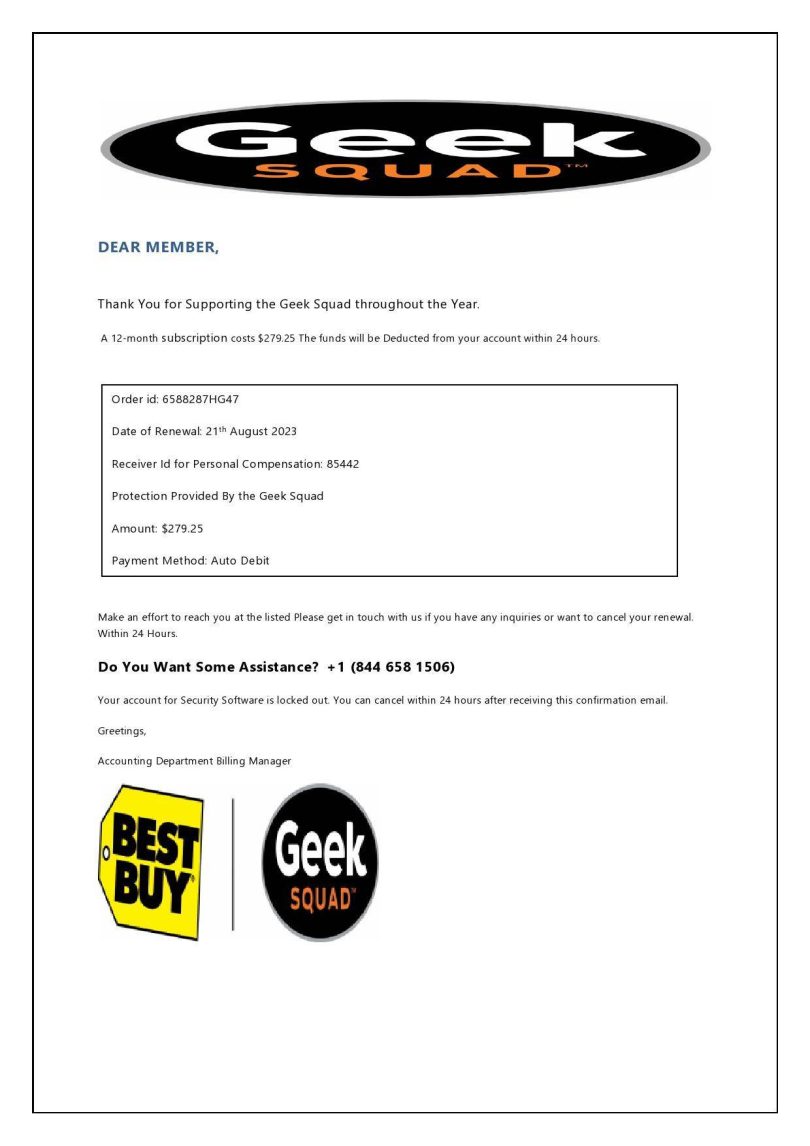Beware the FAKE Geek Squad “Subscription Renewal” Email Scam
We’re all familiar with the Geek Squad, a trusted tech support service provided by Best Buy, one of the largest electronic retailers in the world. They offer various services, including online backup, security, and technical support for our devices. But what happens when an unsolicited email appears in our inbox, claiming to be a “subscription renewal” for our Geek Squad services? Can we trust this email?
We urge you to exercise extreme caution. This email is part of a phishing scam, and by the end of this article, you’ll understand why you should ignore these emails and protect your sensitive information.
The scam typically begins with an email from what appears to be Geek Squad, claiming that your subscription is about to expire. The email will often resemble a legitimate Best Buy or Geek Squad email, using similar logos, fonts, and formatting. It may even include familiar domain names, such as bestbuy.com or geek squad.com. But it’s crucial to recognize the telltale signs of a phony email.
One of the red flags is the urgent tone and the sense of panic created by the email. Phishers often use this tactic to create a false sense of urgency, encouraging the recipient to act quickly without taking the time to verify the authenticity of the email. Another giveaway is the inclusion of suspicious links and attachments. Legitimate companies like Best Buy and Geek Squad would never ask you to click on suspicious links or download attachments from unsolicited emails.
The email may also ask you to provide personal or financial information, which is an absolute no-no. Legitimate organizations will never request sensitive data through unsolicited means. Instead, they’ll provide clear guidelines on how to update your information or renew your subscription through their official channels.
To further complicate matters, these scams can be designed to mimic legitimate-looking invoices, receipts, or confirmations. These hackers may also use the email’s text to social-engineer you into revealing sensitive information, such as your credit card number, password, or other private data.
So, what can you do to protect yourself? Always use a combination of anti-virus and anti-phishing software to scan your emails, and be cautious when clicking on links or downloading attachments. Verify the sender’s domain name, looking for any spelling or grammar mistakes, and avoid responding to these suspicious emails.
If you’re an existing Geek Squad subscriber, you can verify the authenticity of any renewal or notification by



